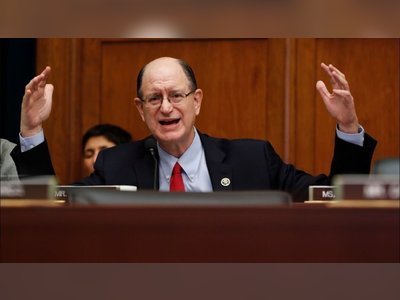
Judge tosses video evidence coming from house where Erickson fled
A judge has decided to exclude video evidence in the matter involving St Ellmore Garraway, a man charged with perverting the course of justice for allegedly blocking police as they were on the hunt for his associate and one-time fugitive from the law, Nyron Erickson, back in July 2020.
Court records show that police retrieved footage from Closed Circuit Television, commonly referred to as CCTV, from the surveillance system located in Garraway’s bedroom.
The footage allegedly showed Erickson, the now-deceased Deverson Williams, and a few other men entering Garraway’s home at about 4 pm on July 12, 2020.
Police received information that Erickson was in Garraway’s home at George’s, North Side on the day in question along with several “associates” and felt they were in possession of drugs and firearms.
Later that evening, several members of the Royal Virgin Islands Police Force (RVIPF) executed a warrant at the premises on the belief that there were firearms and ammunition there. It was later signed with a note stating that “nothing pertaining to the warrant was found”.
Attorney Israel Bruce argued that the CCTV evidence was improperly obtained since the video that was seized was outside of the scope of the search warrant and in contravention of the Evidence Act.
Bruce argued that, due to the breach of the applicant’s constitutional rights and the failure of the investigating police to adequately comply with the requirements for judicial authority before searching residences, and seizing and searching personal property, the admission of the video evidence would bring the administration of justice into disrepute.
Judge Richard Floyd ruled that the search was improper and said the impropriety of the video seizure was heightened by the fact that once seized, the electronic equipment was searched without police obtaining further judicial authorisation for that purpose.
He said Garraway had a reasonable expectation of privacy in his video recording equipment, noting that it was located in his bedroom.
“The cameras depicted an area in and around his private residence. Not only did the police not have a warrant to seize electronic equipment such as video recording equipment belonging to the applicant, but they also went further by examining the equipment and extracting recordings without a warrant,” Judge Floyd stated.
He added: “To allow the improperly obtained evidence, the prejudicial effect of which far outweighs its probative value to be admitted in this case, would also be contrary to the applicant’s right to a fair hearing under s.16(1) of the Virgin Islands Constitution Order 2007.”
Kristian Johnson represented the Crown in the matter before the High Court.
The footage allegedly showed Erickson, the now-deceased Deverson Williams, and a few other men entering Garraway’s home at about 4 pm on July 12, 2020.
Police received information that Erickson was in Garraway’s home at George’s, North Side on the day in question along with several “associates” and felt they were in possession of drugs and firearms.
Later that evening, several members of the Royal Virgin Islands Police Force (RVIPF) executed a warrant at the premises on the belief that there were firearms and ammunition there. It was later signed with a note stating that “nothing pertaining to the warrant was found”.
Attorney Israel Bruce argued that the CCTV evidence was improperly obtained since the video that was seized was outside of the scope of the search warrant and in contravention of the Evidence Act.
Bruce argued that, due to the breach of the applicant’s constitutional rights and the failure of the investigating police to adequately comply with the requirements for judicial authority before searching residences, and seizing and searching personal property, the admission of the video evidence would bring the administration of justice into disrepute.
Judge Richard Floyd ruled that the search was improper and said the impropriety of the video seizure was heightened by the fact that once seized, the electronic equipment was searched without police obtaining further judicial authorisation for that purpose.
He said Garraway had a reasonable expectation of privacy in his video recording equipment, noting that it was located in his bedroom.
“The cameras depicted an area in and around his private residence. Not only did the police not have a warrant to seize electronic equipment such as video recording equipment belonging to the applicant, but they also went further by examining the equipment and extracting recordings without a warrant,” Judge Floyd stated.
He added: “To allow the improperly obtained evidence, the prejudicial effect of which far outweighs its probative value to be admitted in this case, would also be contrary to the applicant’s right to a fair hearing under s.16(1) of the Virgin Islands Constitution Order 2007.”
Kristian Johnson represented the Crown in the matter before the High Court.











